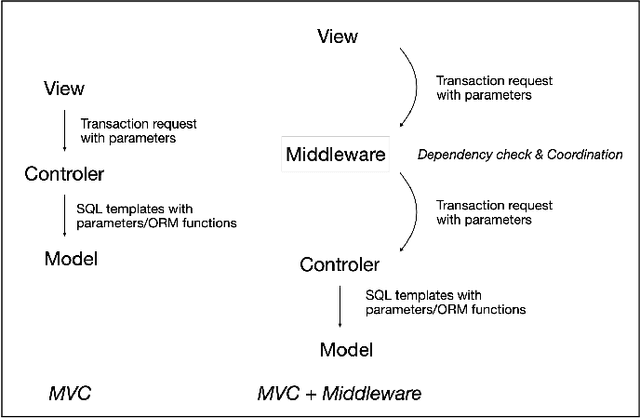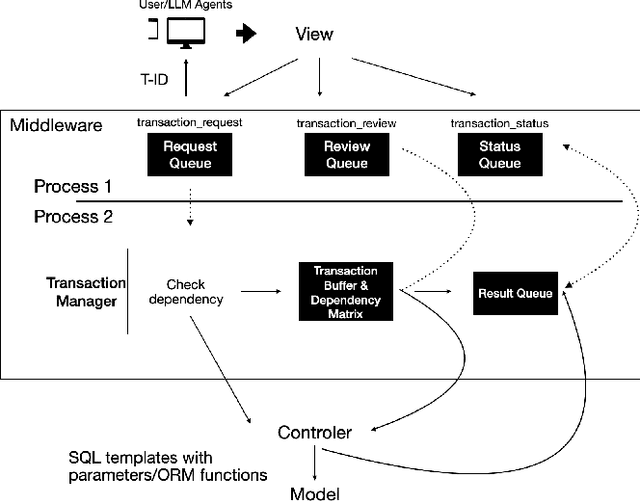A Simple and Fast Way to Handle Semantic Errors in Transactions
Paper and Code
Dec 17, 2024



Many computer systems are now being redesigned to incorporate LLM-powered agents, enabling natural language input and more flexible operations. This paper focuses on handling database transactions created by large language models (LLMs). Transactions generated by LLMs may include semantic errors, requiring systems to treat them as long-lived. This allows for human review and, if the transaction is incorrect, removal from the database history. Any removal action must ensure the database's consistency (the "C" in ACID principles) is maintained throughout the process. We propose a novel middleware framework based on Invariant Satisfaction (I-Confluence), which ensures consistency by identifying and coordinating dependencies between long-lived transactions and new transactions. This middleware buffers suspicious or compensating transactions to manage coordination states. Using the TPC-C benchmark, we evaluate how transaction generation frequency, user reviews, and invariant completeness impact system performance. For system researchers, this study establishes an interactive paradigm between LLMs and database systems, providing an "undoing" mechanism for handling incorrect operations while guaranteeing database consistency. For system engineers, this paper offers a middleware design that integrates removable LLM-generated transactions into existing systems with minimal modifications.
 Add to Chrome
Add to Chrome Add to Firefox
Add to Firefox Add to Edge
Add to Edge